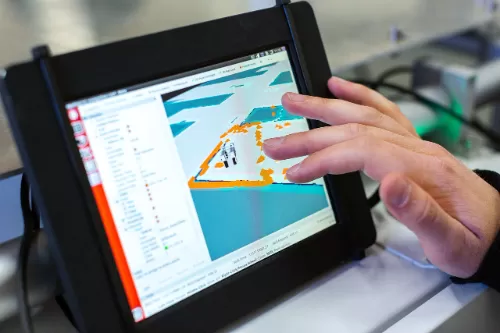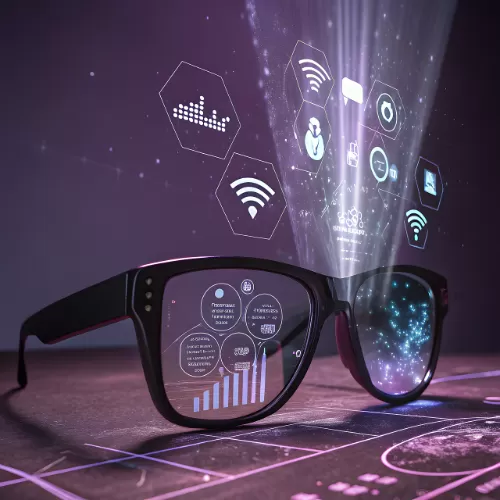Quantum Computing: The Next Big Tech Revolution Explained Simply
In a world where smartphones and laptops feel like extensions of ourselves, a new technological frontier is quietly emerging: Quantum Computing. Often described as the “next big thing,” this revolutionary field promises to solve problems classical computers can’t—from curing diseases to securing global communications. But what exactly is Quantum Computing, and why should everyday Americans care? Let’s break it down in plain terms.
Related searches

What Makes Quantum Computing Different?
At its core, Quantum Computing leverages the strange rules of quantum mechanics—the physics governing subatomic particles. Unlike classical computers, which use bits (0s and 1s) to process information, quantum computers rely on qubits. These qubits can exist in multiple states simultaneously (a phenomenon called superposition), allowing them to perform calculations at mind-boggling speeds
Imagine a classical computer solving a puzzle by testing one piece at a time. A quantum computer, by contrast, could test all possible combinations simultaneously. This advantage could tackle tasks like drug discovery or climate modeling in years instead of centuries.
The Power of Quantum Computing: Beyond Speed
While speed is a headline-grabbing benefit, Quantum Computing offers far more:
Unprecedented Problem-Solving: From optimizing supply chains to simulating complex chemical reactions, quantum algorithms can handle data classical systems can’t.
Cybersecurity Revolution: Current encryption methods rely on mathematical problems classical computers struggle to solve. Quantum Computing could crack these codes, forcing a shift to quantum-resistant security protocols.
Sustainability Advancements: Quantum simulations could design more efficient batteries, fertilizers, and carbon-capture technologies, addressing climate change at scale.
How Quantum Computing Will Impact Your Life
For everyday Americans, Quantum Computing might seem abstract, but its effects will ripple through industries:
Healthcare: Faster drug development could bring cures for diseases like Alzheimer’s or cancer to market decades sooner.
Finance: Safer transactions and smarter fraud detection could protect your bank accounts.
Energy: Quantum-optimized grids could reduce blackouts and lower utility bills.
AI: Pairing Quantum Computing with artificial intelligence could accelerate breakthroughs in self-driving cars and personalized medicine.
Challenges and Limitations
Despite its promise, Quantum Computing faces hurdles:
Fragility: Qubits require extreme conditions (like near-zero temperatures) to function, making hardware costly and complex.
Error Correction: Quantum systems are prone to errors, demanding sophisticated software to stabilize calculations.
Real-World Readiness: While prototypes exist, large-scale, practical applications are still years away.
The Race to Master Quantum Computing
Countries and companies are racing to lead the Quantum Computing revolution. The U.S. government has invested billions in research, while tech giants like IBM, Google, and Microsoft build quantum hardware. Startups like Rigetti and IonQ focus on making Quantum Computing accessible to smaller businesses.
Internationally, China and Europe are also pouring resources into the field, positioning quantum as a cornerstone of 21st-century innovation.
The Future of Quantum Computing
Experts predict Quantum Computing will transition from labs to real-world use cases in the coming decades. While you won’t be buying a quantum laptop anytime soon, its influence will touch nearly every aspect of modern life. For example:
Climate Modeling: Quantum simulations could predict natural disasters with pinpoint accuracy.
Materials Science: New quantum-designed materials might revolutionize electronics or renewable energy.
Cryptography: A global shift to quantum-safe encryption will protect digital infrastructure.
Conclusion: Prepare for the Quantum Age
Quantum Computing isn’t just a niche scientific pursuit—it’s a foundational technology that will redefine industries and daily life. By solving problems once deemed impossible, it holds the key to a healthier, safer, and more sustainable future.
While the road ahead is long, the journey has already begun. As Quantum Computing evolves, so too will our ability to tackle humanity’s greatest challenges. The next big tech revolution isn’t coming—it’s here.

Identity Theft: How to Prevent and Fix a Cyber Breach

Quantum Computing: The Next Big Tech Revolution Explained Simply

Why Digital Wallets Are Safer Than Cash or Credit Cards

How AI Tracks Your Carbon Footprint Without You Lifting a Finger

The Aging Switch: Could Rewriting Our DNA Add 20 Years to Human Life

Smart Home Security: How to Protect Your House with AI








